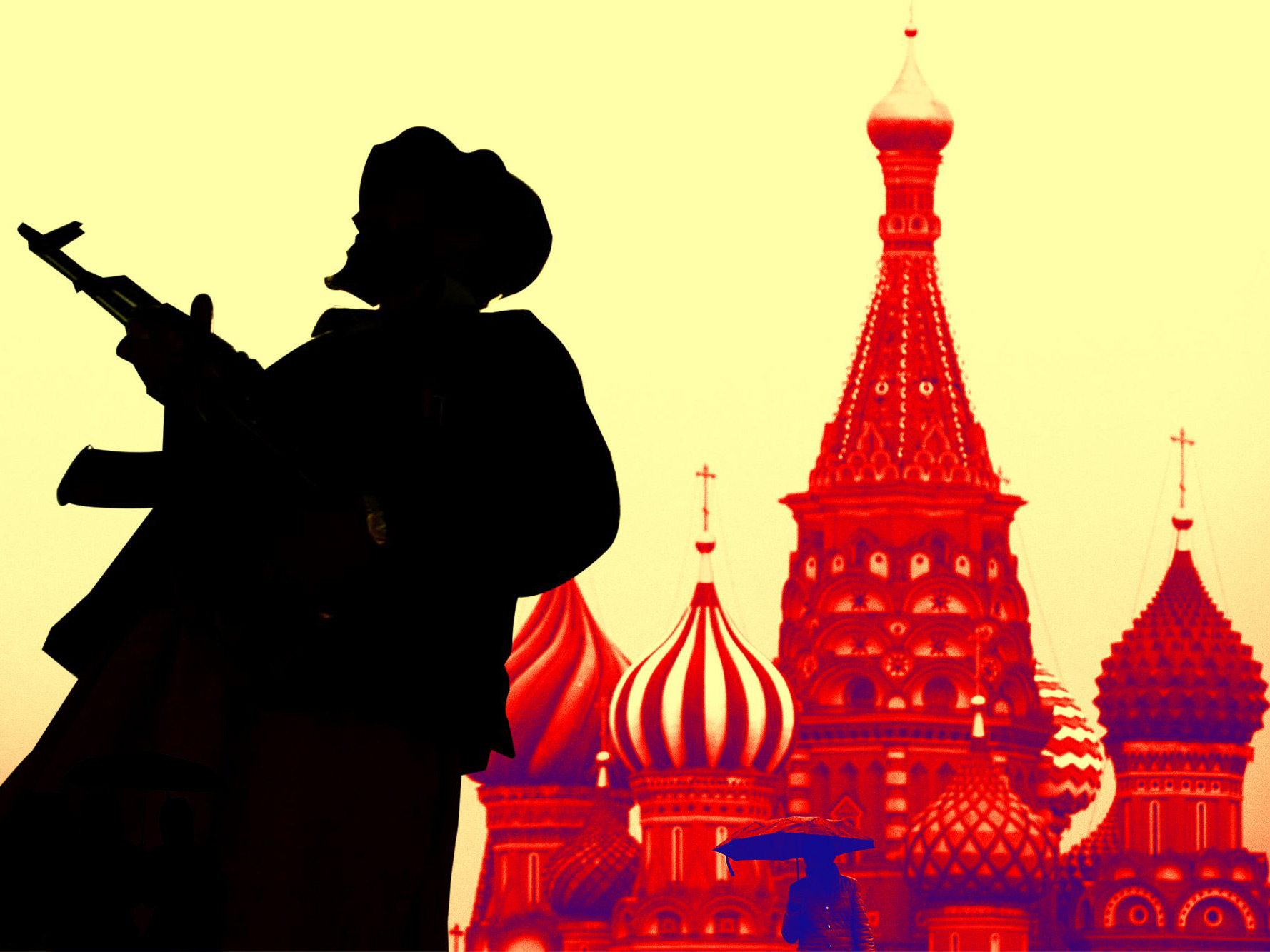

In recent months, Taliban representatives have held several meetings with Russian officials, according to Taliban and Afghan government sources
Hamid Shalizi and Josh Smith -
Afghan and American officials are increasingly worried that any deepening of ties between Russia and Taliban militants fighting to topple the government in Kabul could complicate an already precarious security situation.
Russian officials have denied they provide aid to the insurgents, who are contesting large swathes of territory and inflicting heavy casualties, and say their limited contacts are aimed at bringing the Taliban to the negotiating table.
Leaders in Kabul say Russian support for the Afghan Taliban appears to be mostly political so far.
But a series of recent meetings they say has taken place in Moscow and Tajikistan has made Afghan intelligence and defence officials nervous about more direct support including weapons or funding.
A senior Afghan security official called Russian support for the Taliban a “dangerous new trend”, an analysis echoed by the top US commander in Afghanistan, General John Nicholson.
He told reporters at a briefing in Washington last week that Russia had joined Iran and Pakistan as countries with a “malign influence” in Afghanistan, and said Moscow was lending legitimacy to the Taliban.
Russia’s Ambassador to Kabul, Alexander Mantytskiy, told reporters on Thursday that his government’s contacts with the insurgent group were aimed at ensuring the safety of Russian citizens and encouraging peace talks.
“We do not have intensive contacts with the Taliban,” he said through an interpreter, adding that Russia favoured a negotiated peace in Afghanistan which could only happen by cultivating contacts with all players, including the Taliban.
Mantytskiy expressed annoyance at persistant accusations of Russian collaboration with the Taliban, saying the statements by American and Afghan officials were an effort to distract attention from the worsening conflict.
“They are trying to put the blame for their failures on our shoulders,” he said.
Afghanistan has long been the scene of international intrigue and intervention, with the British and Russians jockeying for power during the 19th Century “Great Game,” and the United States helping Pakistan provide weapons and funding to Afghan rebels fighting Soviet forces in the 1980s.
Taliban officials said that the group has had significant contacts with Moscow since at least 2007, adding that Russian involvement did not extend beyond “moral and political support”.
“We had a common enemy,” said one senior Taliban official. “We needed support to get rid of the United States and its allies in Afghanistan and Russia wanted all foreign troops to leave Afghanistan as quickly as possible.”
Moscow has been critical of the United States and Nato over their handling of the war in Afghanistan, but Russia initially helped provide helicopters for the Afghan military and agreed to a supply route for coalition materials through Russia.
Most of that cooperation has fallen apart as relations between Russia and the West deteriorated in recent years over the conflicts in Ukraine and Syria. Incoming US president Donald Trump, who takes office in January, has signalled a desire to improve relations with Russia, meaning future US and Russian policies could change.
In recent months, Taliban representatives have held several meetings with Russian officials, according to Taliban and Afghan government sources. Those meetings included a visit to Tajikistan by the Taliban shadow governor of Kunduz province, Mullah Abdul Salam, said Kunduz police chief Qasim Jangalbagh.
Another recent meeting occurred in Moscow itself, according to an official at the presidential palace in Kabul. Earlier this week Afghan lawmakers said they planned to investigate reports of Russian aid to the Taliban, and had sent a letter to Moscow seeking clarification.
Afghan officials did not produce evidence of direct Russian aid, but recent cross-border flights by unidentified helicopters and seizures of new “Russian-made” guns had raised concerns that regional actors may be playing a larger role, Jangalbagh said.
“If the Taliban get their hands on anti-aircraft guns provided, for example, by Russia, then it is a game-changer, and forget about peace,” said another senior Afghan security official. — Reuters
Oman Observer is now on the WhatsApp channel. Click here



